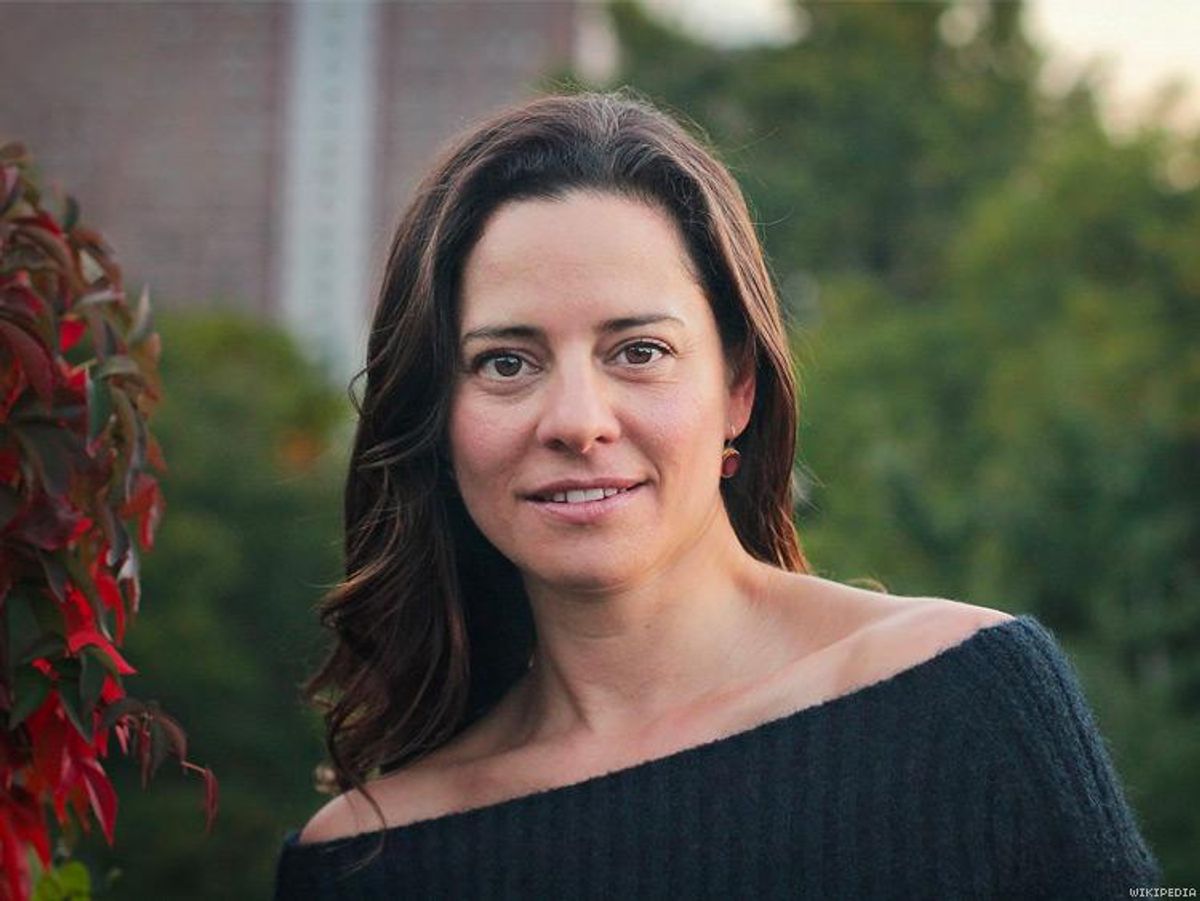Ariel Levy thought she had it all -- an amazing job, a wife she loved, a baby on the way. Yet she felt like something was missing.
This is the reality that Levy writes about in The Rules Do Not Apply, a memoir about the grief of losing her son, her wife's struggle with alcoholism, and having an affair with an ex that plunged her marriage into disarray.
Levy has been a staff writer at The New Yorker since 2008, and before that she was an editor at New York magazine. In the pages of The New Yorker, she's covered the lives of fascinating, brave, and unconventional women like Edith Windsor, Jill Soloway, Caster Semenya, Lamar Van Dyke, and most recently, Catherine Opie.
The Rules Do Not Apply was bred out of a personal essay Levy wrote for the magazine in 2013 while she was on a reporting trip in Mongolia. She won a National Magazine Award for "Thanksgiving in Mongolia," which details the night she had a miscarriage in her hotel room. Her son died before she was able to get medical attention.
Before Levy experienced these deep losses, she thought she could have everything without any consequences, as she writes in her memoir. "Everything" meaning her marriage, a child, an affair, and a job she loves dearly. "Women of my generation were given the lavish gift of our own agency by feminism -- a belief that we could decide for ourselves how we would live, what would become of us," she writes in The Rules Do Not Apply.
It was her writing that always served as an anchor for her, and she thought that the power of authorship was something she could channel in her personal life. The inability to control the narrative of her own life was the opposite of what Levy was used to as a writer. She loved writing because she could project her own meaning onto subjects and shape the story of other people's lives. The big revelation she encountered after losing her son and wife was that regardless of how developed her skills were at perception and reflection and understanding, she ultimately was susceptible to the same forces everyone else is.
By sharing these personal details and delving into how she processed the experience, Levy says it didn't give her catharsis, but what it did give her was the opportunity to explore truth in a way that she isn't able to as a reporter. "It's my truth, it's not my former spouse's truth, not my mother's truth, just my truth, but the exercise of trying to tell that truth as precisely as I possibly could I found very exciting. I found this different opportunity for truth telling than reporting is," she told The Advocate.
Going public with the regret she experienced after losing her closest relationship didn't give her closure, she said, because "nothing changes that I [had an affair] and writing about it doesn't change that I did that. It's absolutely my greatest regret and I wish I hadn't."
The way Levy moved forward is by learning to accept that she could not change what happened. Trying to do so was futile.
"It became clear to me that these were not things I could make sense of, these were things that I had to accept," she said. "These were things that I had to surrender, to and no amount of analysis was going to make either of these things make any kind of logical sense to me and no amount of interpretive work was going to give me any more power. I had to accept that I was powerless over both of these things."
Once the book was finished and out in the world, Levy had another revelation. "The work of becoming an adult is accepting that you can't have everything that you want or that you're entitled to everything that you want," she said. "That's not the thinking of a feminist, that's the thinking of a toddler, and for me, the process of relinquishing that illusion of control, as painful as its been, has been liberating. I'm grateful for that."


















































































